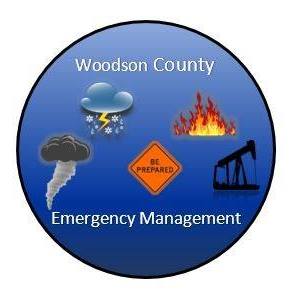We use chemicals every day around our homes and in our places of work. Chemicals can be helpful agents in fueling our vehicles, painting our homes and appliances, removing paint, fertilizing our gardens and farms, killing weeds, killing bugs and pests, cleaning, lubricating and preparing parts, disinfecting and cleaning bathrooms and kitchens, and many other useful purposes. Businesses and industries use chemicals to produce their products or provide their services. In Coffey County, there are a number of businesses and industries that use and/or produce chemicals. These businesses include farm fertilizer services, auto painting/servicing, pest control services, oil production and producing electricity, among other industries.
Because chemicals are used all throughout our lives, it would be no surprise to find them around every part of our surroundings, but we may not be aware of their presence. They can be in basements, garages, kitchens and bathrooms of our homes. They can be in the businesses and industries that operate in our communities. Coffey County has major state and interstate highways and rail lines running through it. So chemicals are transported on these roadways and rail lines throughout the county. We may find chemicals in various containers or closed systems such as bags, bottles, cans, pails, pipelines, tanks, etc.
Chemicals are useful items in our lives and can be safely used, handled and stored if done in a controlled or common sense manner. When chemicals are not controlled or are lost from their closed systems, we must be prepared to act in a manner to limit our exposure to the hazards from their spill or release.
What to do if you observe a chemical spill/release
If you observe a chemical spill or release, either driving down a road or looking out your window at home, report the spill/release by dialing 9-1-1. The 9-1-1 operator will dispatch the proper response agency.
What to do in a chemical emergency
A chemical emergency can occur from a transportation source, such as trucks or railcars, or from businesses or industries in the area. If a chemical emergency occurs in your neighborhood, you will be notified by local officials using a combination of radio, television, door-to-door contact. If your health and/or safety is in danger you will either be advised to shelter-in-place or to evacuate.
How could a release of radioactive material happen in Woodson County?
An accident involving radioactive materials is possible anywhere radioactive materials are used or transported. These materials can be found in medical, industrial, research, or construction activities. Kansas Department of Health and Environment or the Nuclear Regulatory Commission must license companies using a radioactive source. A transportation accident involving someone hauling radioactive material is very possible. In Woodson County, highways, and railroads are used to transport these materials.
In the event a foreign country were to attack the United States using nuclear weapons, Woodson County could receive radioactive fallout, or be a target for attack.
If a hazardous radiation situation occurs, persons from local emergency groups, Woodson County Emergency Management, and numerous volunteers would be called in without delay. These responders would check for a radioactive release and contamination to personnel or vehicles, inform the public on what actions to take, and work to protect the health and safety of everyone involved.
Plans and procedures are in place to cover specific details regarding responsibilities and response action for Woodson County in the event of a nuclear accident.
For more information on this subject, call Woodson County Emergency Management at (620) 625-8605 ext 8.
Woodson County is prepared to help Coffey County with any issues that may arise with Wolf Creek. We have procedures in place for response help in the event of an emergency. For additional information to use during Wolf Creek emergencies, visit www.wcnoc.com.


